What Goes In Must Come Out
For your puppy, you will want a water bowl, food bowl, and some sort of mat or tray to place these bowls on to keep the area clean and for the puppy to easily recognize its feeding area. It is extremely important to feed a good quality puppy food and not some “cheap” food. A low quality food will usually not be nutritionally complete and it will cause the puppy to have to defecate more, making housebreaking more difficult. Considering that you actually feed less of the good quality food over a “cheap” dog food means that in the long run you will spend approximately the same amount of money anyway, and your puppy will grow up to be a healthier dog and that will help avoid those expensive trips to the veterinarian. Remember to buy only dry puppy food that is best for your particular puppy breed. For instance, a puppy that will grow into a large dog should only be fed large breed puppy food, because a regular puppy food will not take into account the great amount of growth a large dog breed will experience in the first year of life.
Where Good Feeding Goes Bad
It is also very important not to change foods around on your puppy but to stick with one good quality puppy food. Giving different types of puppy food, feeding lots of dog treats, and giving people food can cause a puppy to vomit or develop diarrhea. Puppies are not like people and don’t get sick of eating the same good quality puppy food everyday and in fact can be turned into a picky eater by feeding them too many types of foods. Don’t spoil your puppy with food but with praise and play!
Leave them High and Dry
It is best to feed only a high quality dry puppy food, and no canned, to your new puppy unless it is extremely small or young, and only as long as needed. Canned food is mostly water, therefore more has to be eaten to get the nutrition they need and that means they will need to go out more frequently! Another important benefit is that dry food keeps the teeth cleaner and for puppies, it is extremely helpful when they are losing their baby teeth and feel the need to chew more to help the adult teeth come in. Puppies do not need to eat any canned or moist food especially as they get older.
What’s Mine is Mine, What’s Yours is Also Mine
Normally a young puppy of eight weeks of age should be fed three to four times a day depending on the size of the puppy. The food should be placed on the floor for fifteen minutes or so and then taken away. In the beginning, and even throughout the first year, you should take the food away once in a while for a moment or so after the puppy begins eating so that they will not get territorial about their food. You can also feed a few pieces from your hand first before offering the bowl. Pat the puppy after you take its food away, when you are giving it some from your hand, and when it is eating from the bowl. This is important for training so that the puppy will not get aggressive toward you, like growling or snapping, if you get near the puppy when it is eating.
To Treat or Not to Treat
Treats made for puppies are fine to give as part of an award to your puppy for being good and for training, as long as it is kept to a minimum. But giving too many treats can cause gastrointestinal upset, i.e. vomiting or diarrhea, and/or the puppy may not eat its regular puppy food because it gets too filled up on treats. This is very bad for its health since treats will not have all the vitamins, minerals, proteins, and other ingredients in the proper ratios for a puppy to grow and develop properly which can lead to obesity when the puppy reaches adulthood, so please do not spoil your puppy with lots of treats.
Don’t Lick the Plates
Giving your puppy people food is a definite no-no! First, people food is not nutritionally correct for a puppy or dog and so it can badly affect their health over time. Secondly, and maybe even more importantly, giving your puppy people food can lead to very bad behaviors like begging at the table or stealing food from the kitchen. A puppy will not know any better that it doesn’t have the right to take it when it appears “available” to them. To avoid any of this, never feed people food to your puppy or dog. In fact, when everyone is sitting at the table eating, the puppy should be placed away from the table in a secure area, like a crate, so that it will not have the opportunity to beg or eat any of the food, which may be dropped by accident.
Supplies Checklist
- Water bowl
- Food bowl
- Food
- Food mat
- Dog toys
- Chews
- Treats
- Brushes/combs
- Collars
- Leashes
- Cleaning supplies
- Crate/ blankets
- Training aids

